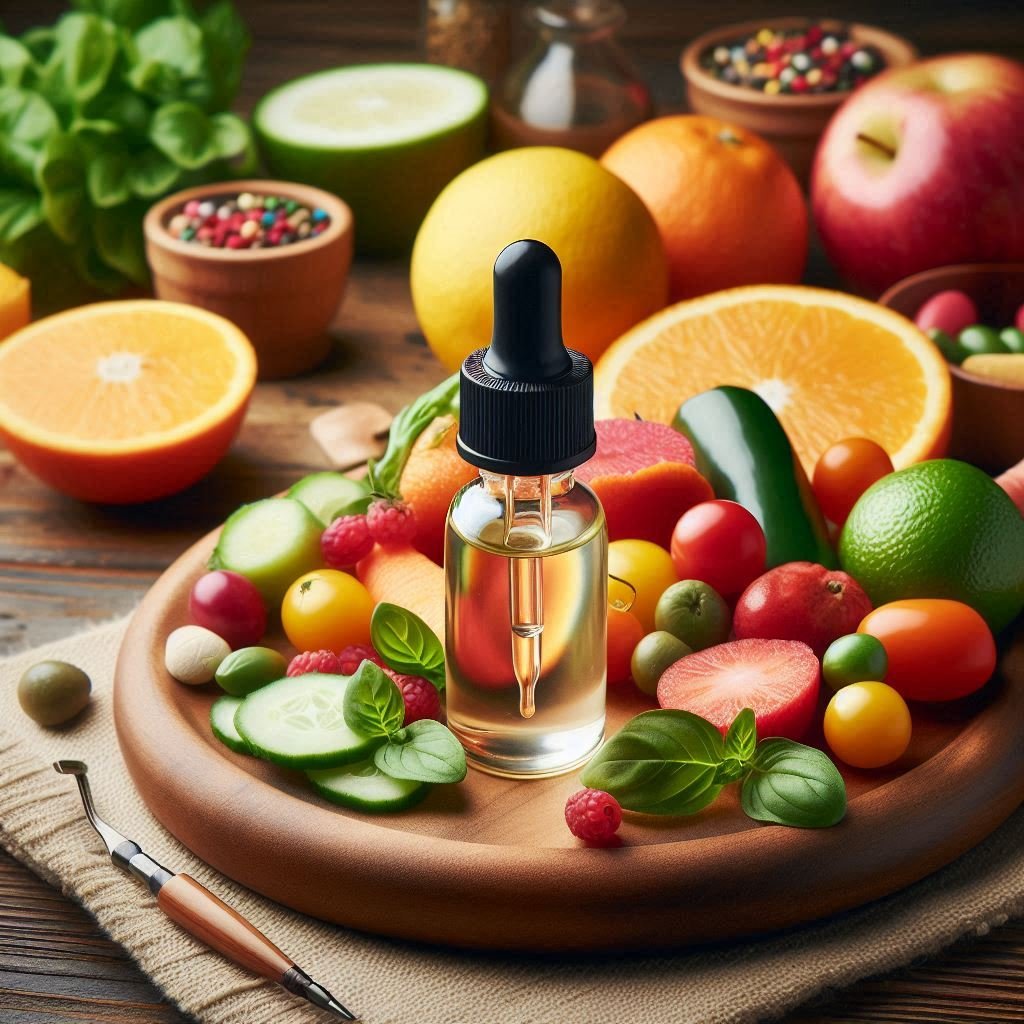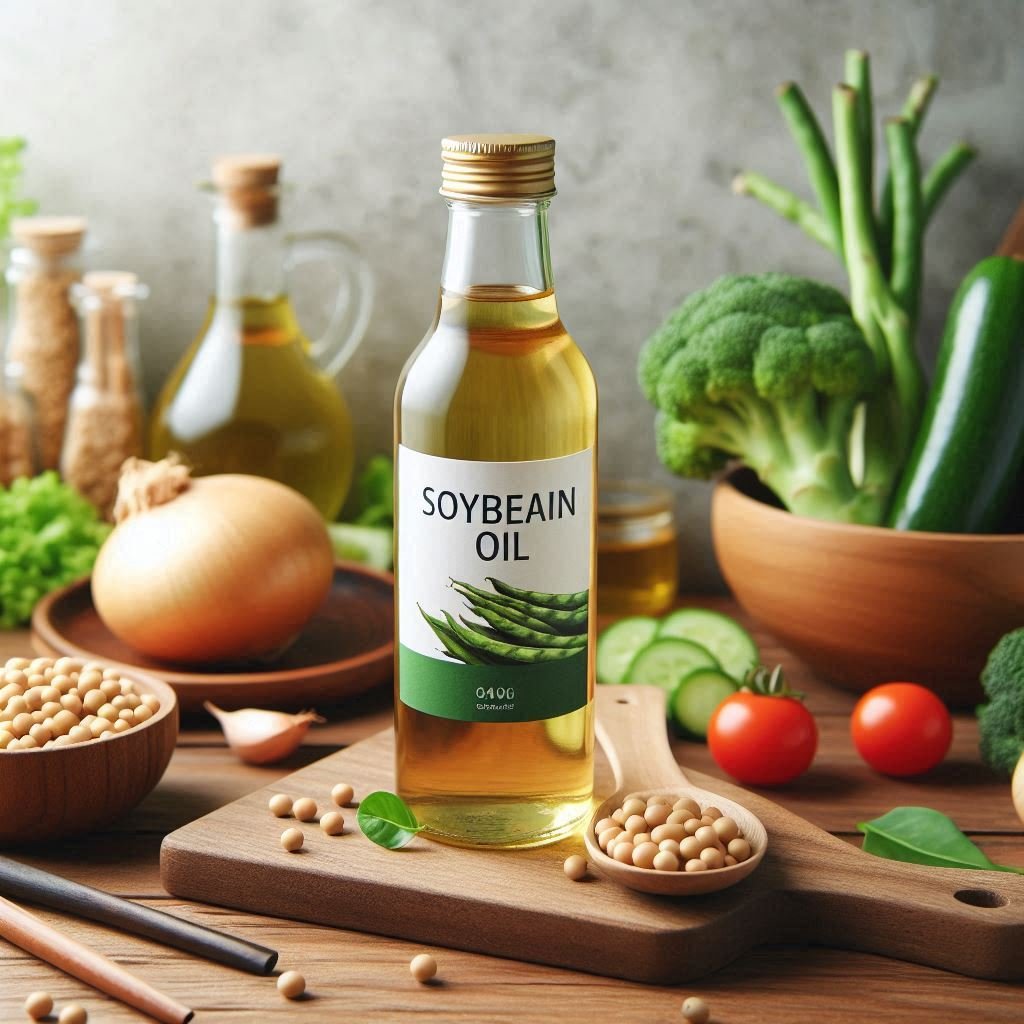Are you unknowingly fueling the flames of inflammation in your body? The foods we eat can have a profound impact on our overall health, and some ingredients can trigger a firestorm of inflammation that can lead to chronic pain, fatigue, and even disease.
In this article, we’ll expose the 14 most inflammatory ingredients to avoid at all costs, empowering you to make informed choices and take control of your health.
Sugar: The Sweet Deceiver

Sugar is one of the most consumed ingredients in the modern diet, and it’s also one of the most inflammatory. Consuming high amounts of sugar has been linked to an increased risk of chronic diseases, including obesity, type 2 diabetes, and heart disease. But why is sugar so bad for us?
The problem lies in the way our bodies process sugar. When we eat sugar, it triggers an insulin response, which can lead to insulin resistance and inflammation. Insulin resistance is a precursor to type 2 diabetes, and chronic inflammation is a known risk factor for many diseases.
But sugar is sneaky. It’s hidden in many foods, even those that don’t taste sweet. From bread to pasta sauce, sugar is added to many processed foods to enhance flavor and extend shelf life. And it’s not just table sugar that’s the problem – natural sweeteners like honey and maple syrup can also cause inflammation.
So, what can you do to reduce your sugar intake? Start by reading labels and looking for hidden sources of sugar. Choose whole, unprocessed foods as much as possible, and limit your intake of sugary drinks and treats.
Refined Flour: The White Lie

Refined flour is another common ingredient that’s hiding in many processed foods. From bread to pasta to baked goods, refined flour is a staple in many modern diets. But it’s also a major contributor to inflammation.
The problem with refined flour is that it’s stripped of nutrients and fiber, leaving behind empty calories that can cause a spike in blood sugar and insulin levels. This can lead to inflammation and insulin resistance, increasing the risk of chronic diseases.
But refined flour is also highly addictive. It’s often paired with sugar and other unhealthy ingredients to create foods that are designed to be irresistible. This can lead to overconsumption and a cycle of cravings and bingeing.
So, what can you do to reduce your refined flour intake? Start by choosing whole, unprocessed grains like brown rice, quinoa, and whole wheat. Limit your intake of processed foods, and opt for homemade baked goods made with healthier ingredients.
Vegetable Oils: The Unhealthy Fats

Vegetable oils are often touted as a healthy alternative to saturated fats, but the truth is that they can be just as unhealthy. Many vegetable oils are high in omega-6 fatty acids, which can cause inflammation when consumed in excess.
The problem with vegetable oils is that they’re often highly processed and contain high levels of polyunsaturated fats. These fats can become oxidized when heated, leading to the formation of free radicals that can cause inflammation and damage to cells.
Some of the worst offenders include soybean oil, corn oil, and canola oil. These oils are often used in processed foods and fried foods, making them a common ingredient in many modern diets.
So, what can you do to reduce your intake of unhealthy vegetable oils? Start by choosing healthier fats like olive oil, avocado oil, and coconut oil. Limit your intake of processed foods and fried foods, and opt for homemade cooking methods like baking and grilling.
Food Dyes: The Rainbow of Risk

Food dyes are added to many processed foods to enhance their color and appeal. But these dyes can have a dark side – they’ve been linked to an increased risk of hyperactivity, allergies, and even cancer.
The problem with food dyes is that they’re often made from synthetic chemicals that can be toxic to the body. These chemicals can cause inflammation and oxidative stress, leading to a range of health problems.
Some of the worst offenders include Red 40, Yellow 5, and Blue 1. These dyes are commonly found in foods like candy, soda, and processed snacks.
So, what can you do to reduce your intake of food dyes? Start by reading labels and looking for natural ingredients. Choose whole, unprocessed foods as much as possible, and limit your intake of processed snacks and treats.
Monosodium Glutamate (MSG): The Flavor Enhancer of Fear

Monosodium glutamate, or MSG, is a flavor enhancer commonly used in Asian cuisine and many processed foods. But it’s also been linked to a range of health problems, including headaches, nausea, and even asthma attacks.
The problem with MSG is that it’s a excitotoxin, which means it can overstimulate cells and cause inflammation. This can lead to a range of health problems, including chronic pain, fatigue, and even neurological disorders.
MSG is often hidden in foods under names like “natural flavors” or “yeast extract.” It’s commonly found in foods like Chinese food, soups, and processed meats.
So, what can you do to reduce your intake of MSG? Start by reading labels and looking for hidden sources of MSG. Choose whole, unprocessed foods as much as possible, and limit your intake of processed foods and restaurant meals.
Sodium Benzoate: The Preservative of Pain

Sodium benzoate is a preservative commonly used in foods like soda, fruit juice, and processed meats. But it’s also been linked to an increased risk of inflammation and oxidative stress.
The problem with sodium benzoate is that it can cause a buildup of acetylaldehyde, a toxic compound that can damage cells and cause inflammation. This can lead to a range of health problems, including chronic pain, fatigue, and even cancer.
Sodium benzoate is often hidden in foods under names like “preservatives” or “natural flavors.” It’s commonly found in foods like soda, fruit juice, and processed meats.
So, what can you do to reduce your intake of sodium benzoate? Start by reading labels and looking for hidden sources of this preservative. Choose whole, unprocessed foods as much as possible, and limit your intake of processed foods and sugary drinks.
High-Fructose Corn Syrup: The Sweet Saboteur

High-fructose corn syrup is a sweetener commonly used in foods like soda, baked goods, and processed snacks. But it’s also been linked to an increased risk of obesity, type 2 diabetes, and heart disease.
The problem with high-fructose corn syrup is that it’s highly addictive and can cause a rapid spike in blood sugar and insulin levels. This can lead to insulin resistance and inflammation, increasing the risk of chronic diseases.
High-fructose corn syrup is often hidden in foods under names like “corn syrup” or “fructose.” It’s commonly found in foods like soda, baked goods, and processed snacks.
So, what can you do to reduce your intake of high-fructose corn syrup? Start by reading labels and looking for hidden sources of this sweetener. Choose whole, unprocessed foods as much as possible, and limit your intake of sugary drinks and processed snacks.
Partially Hydrogenated Oils: The Trans-Fat Trap

Partially hydrogenated oils, also known as trans fats, are a type of unsaturated fat that has been hydrogenated to make it more solid. They were once commonly used in processed foods, but have since been largely banned due to their harmful effects on health.
The problem with partially hydrogenated oils is that they can increase the risk of heart disease and stroke by raising bad cholesterol levels and lowering good cholesterol levels. They can also cause inflammation and oxidative stress, leading to a range of health problems.
While partially hydrogenated oils are no longer commonly used in foods, they can still be found in some processed snacks and baked goods. Be sure to read labels carefully and choose products that use healthier fats like olive oil or avocado oil instead.
Artificial Sweeteners: The Bitter Truth

Artificial sweeteners like aspartame, sucralose, and saccharin are commonly used in low-calorie foods and drinks. While they may seem like a healthy alternative to sugar, they can actually be harmful to our health.
The problem with artificial sweeteners is that they can confuse our bodies’ natural ability to regulate blood sugar levels, leading to cravings for more sweet foods and drinks. They can also cause inflammation and oxidative stress, leading to a range of health problems.
Additionally, some artificial sweeteners have been linked to an increased risk of cancer, neurological disorders, and other health problems. It’s best to avoid artificial sweeteners altogether and instead choose natural sweeteners like stevia or monk fruit.
Polysorbate 80: The Emulsifier of Inflammation

Polysorbate 80 is a common emulsifier used in foods like ice cream, yogurt, and salad dressings. It helps to mix oil and water together, creating a smooth and creamy texture.
The problem with polysorbate 80 is that it can cause inflammation and oxidative stress, leading to a range of health problems. It can also disrupt the gut microbiome, leading to digestive problems and other health issues.
While polysorbate 80 is generally considered safe by the FDA, it’s still best to limit your intake of foods that contain this emulsifier. Choose whole, unprocessed foods as much as possible, and opt for natural emulsifiers like egg yolks or mustard instead.
Soybean Oil: The Omega-6 Overload

Soybean oil is a common cooking oil used in many processed foods. While it may seem like a healthy alternative to other oils, it can actually be harmful to our health.
The problem with soybean oil is that it’s high in omega-6 fatty acids, which can cause inflammation and oxidative stress when consumed in excess. This can lead to a range of health problems, including heart disease, cancer, and autoimmune disorders.
Additionally, soybean oil is often genetically modified and processed using high-heat methods, which can make it even more harmful to our health. It’s best to choose healthier oils like olive oil or avocado oil instead.
Carrageenan: The Gut-Wrenching Additive

Carrageenan is a common additive used in foods like almond milk, yogurt, and ice cream. It helps to thicken and stabilize these products, creating a smooth and creamy texture.
The problem with carrageenan is that it can cause inflammation and oxidative stress, leading to digestive problems and other health issues. It can also disrupt the gut microbiome, leading to a range of health problems.
While carrageenan is generally considered safe by the FDA, it’s still best to limit your intake of foods that contain this additive. Choose whole, unprocessed foods as much as possible, and opt for natural thickeners like gelatin or agar agar instead.
BHA and BHT: The Preservative Pair of Pain

BHA (butylated hydroxyanisole) and BHT (butylated hydroxytoluene) are common preservatives used in foods like cereals, crackers, and potato chips. They help to extend the shelf life of these products, preventing spoilage and oxidation.
The problem with BHA and BHT is that they can cause inflammation and oxidative stress, leading to a range of health problems. They can also disrupt the gut microbiome, leading to digestive problems and other health issues.
While BHA and BHT are generally considered safe by the FDA, it’s still best to limit your intake of foods that contain these preservatives. Choose whole, unprocessed foods as much as possible, and opt for natural preservatives like vitamin E or rosemary extract instead.
Aspartame: The Artificial Sweetener of Suffering

Aspartame is a common artificial sweetener used in low-calorie foods and drinks. While it may seem like a healthy alternative to sugar, it can actually be harmful to our health.
The problem with aspartame is that it can cause inflammation and oxidative stress, leading to a range of health problems. It can also disrupt the gut microbiome, leading to digestive problems and other health issues.
Additionally, aspartame has been linked to an increased risk of cancer, neurological disorders, and other health problems. It’s best to avoid aspartame altogether and instead choose natural sweeteners like stevia or monk fruit.
FAQs
Q: What are the most inflammatory ingredients to avoid?
A: The 14 most inflammatory ingredients to avoid are sugar, refined flour, vegetable oils, food dyes, MSG, sodium benzoate, high-fructose corn syrup, partially hydrogenated oils, artificial sweeteners, polysorbate 80, soybean oil, carrageenan, BHA and BHT, and aspartame.
Q: Why are these ingredients so bad for me?
A: These ingredients can cause inflammation and oxidative stress in the body, leading to a range of health problems including chronic pain, fatigue, digestive issues, and even diseases like heart disease, cancer, and autoimmune disorders.
Q: How can I avoid these ingredients?
A: To avoid these ingredients, start by reading labels carefully and choosing whole, unprocessed foods as much as possible. Limit your intake of processed foods and sugary drinks, and opt for natural sweeteners and preservatives instead.
Q: Are there any healthy alternatives to these ingredients?
A: Yes! There are many healthy alternatives to these ingredients. For example, you can use natural sweeteners like stevia or monk fruit instead of sugar, and choose healthier oils like olive oil or avocado oil instead of vegetable oils.
Q: Can I still eat out or order takeout if I’m trying to avoid these ingredients?
A: While it may be more challenging to avoid these ingredients when eating out or ordering takeout, it’s not impossible. Try to choose restaurants that use whole, unprocessed ingredients and ask questions about the menu items. You can also opt for healthier takeout options like salads or grilled meats and vegetables.
Q: How long will it take to see the benefits of avoiding these ingredients?
A: The benefits of avoiding these ingredients can vary depending on individual factors, but many people report feeling better within a few weeks to a few months of making changes to their diet. Be patient and remember that it’s a journey towards better health!




